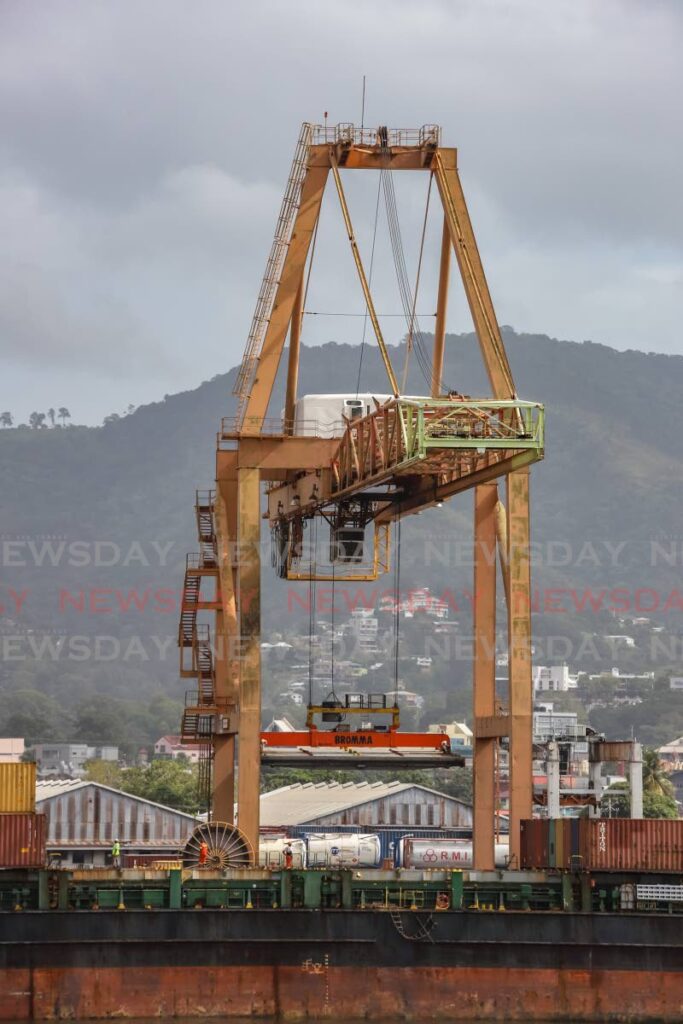Joint Chambers want Port of Spain port delays resolved

FOUR of the country’s largest business chambers have issued a collective call for the government to resolve ongoing industrial action at the Port of Port of Spain.
Protests at the port escalated in August and spread to the Scarborough port in October. Some business leaders worry the protests can become untenable.
In their first collective statement on the disruptions, the chambers warned that the situation “is leading to a national crisis, at a most inopportune time of the year when the volume of shipments is typically at its highest and makes it imperative that the port operates efficiently.”
Their statement reflected the concern of the TT Chamber of Industry and Commerce, the TT Manufacturers’ Association, the American Chamber of Commerce of TT and the Energy Chamber of TT.
The co-ordinated statement follows earlier individual calls for swift government intervention from other business organisations and chambers, including the Downtown Owners and Merchants Association and the Couva/Point Lisas Chamber of Commerce.
Industrial action at the Port of Port of Spain escalated in October, as port workers halted operations over stalled wage negotiations and what they describe as deteriorating, unsanitary working conditions.
The Seamen and Waterfront Workers Trade Union (SWWTU) called for a 12 per cent wage increase for the 2014-2017 period, which Annisette insisted had been previously agreed upon by former transport minister Stephen Cadiz, shortly before the PNM’s return to office.
The union said workers received an offer of two per cent, which it rejected as inadequate and disrespectful.
The chambers’ statement stressed the financial toll of the disruptions on national logistics.
“The extensive delays at the port are negatively affecting port revenue; vessel bypasses; increased detention fees and haulage rates; delivery of raw materials for production; and the cost of production and of finished goods.”
The frequency of industrial action has increased in the past month, causing further delays in cargo handling.
The Joint Chambers suggested a trend for the protest actions, noting that they often occurred on Wednesdays, “immediately prior to re-stocking at the port,” which happens on Thursdays and Fridays, creating an “unsustainable situation that is crippling businesses of all sizes and delaying delivery of Christmas inventory.”
The statement also expressed concerns about broader economic impacts, including the challenges posed by foreign-exchange shortages, which complicate import costs for raw materials and finished goods.
The chambers warned that extended delays could lead to “further destabilisation of production lines and the availability of goods,” ultimately affecting local consumers as well as businesses.
The chambers called on the government to take “swift, decisive, and comprehensive action” to resolve the current disruptions and stabilise port operations. The statement underscores the urgency by noting that continued unrest threatens to worsen “business conditions and impact prices for consumers,” as production and logistical costs rise.”
Newsday spoke briefly with the union’s president Michael Annisette, who said his position remained unchanged from that outlined in a statement issued the day before, suggesting little promise of de-escalating action.
“The union has made itself absolutely clear,” he said. “The workers will not be made a scapegoat by anyone for the behaviour of the government, who is the cause of this impasse by their insensitivity, disinformation and the attempt to force down the throats of dock workers a two per cent increase for the period where there was a negotiated 12 per cent agreement.”
He said the current government ignored this agreement on the basis that it was not negotiated with the Chief Personnel Officer.
Annisette said the Port Authority proposed a framework agreement with SWWTU in 2015 to enhance the port’s competitiveness and productivity in the global maritime sector.
The agreement included transitioning to a 12-hour shift system, creating a new “docker” position, and offering a productivity incentive programme.
The framework was signed on August 28. A series of meetings with stakeholders followed, including shipping lines and other port-related entities, to discuss the plan's impact.
NATUC dismissed the government’s suggestions that the Port Authority had not followed due process, saying they were "misleading, unfair, and potentially disruptive to the collective bargaining process."

Comments
"Joint Chambers want Port of Spain port delays resolved"